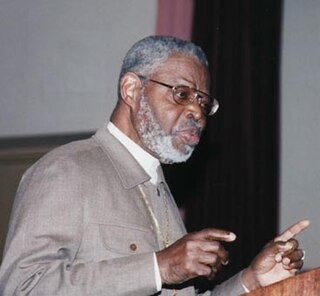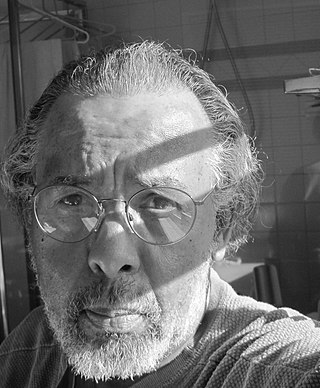Related Research Articles

The Scopes trial, formally The State of Tennessee v. John Thomas Scopes, and commonly referred to as the Scopes Monkey Trial, was an American legal case from July 10 to July 21, 1925, in which a high school teacher, John T. Scopes, was accused of violating Tennessee's Butler Act, which had made it illegal for teachers to teach human evolution in any state-funded school. The trial was deliberately staged in order to attract publicity to the small town of Dayton, Tennessee, where it was held. Scopes was unsure whether he had ever actually taught evolution, but he incriminated himself deliberately so the case could have a defendant.

Clarence Seward Darrow was an American lawyer who became famous in the 19th century for high profile representations of trade union causes, and in the 20th century for several criminal matters, including the Leopold and Loeb murder trial, the Scopes "monkey" trial, and the Ossian Sweet defense. He was a leading member of the American Civil Liberties Union and a prominent advocate for Georgist economic reform. Darrow was also well known as a public speaker, debater, and writer.

Afrocentrism is a worldview that is centered on the history of people of African descent or a view that favors it over non-African civilizations. It is in some respects a response to Eurocentric attitudes about African people and their historical contributions. It seeks to counter what it sees as mistakes and ideas perpetuated by the racist philosophical underpinnings of Western academic disciplines as they developed during and since Europe's Early Renaissance as justifying rationales for the enslavement of other peoples, in order to enable more accurate accounts of not only African but all people's contributions to world history. Afrocentricity deals primarily with self-determination and African agency and is a pan-African point of view for the study of culture, philosophy, and history.
Martin Gardiner Bernal was a British scholar of modern Chinese political history. He was a Professor of Government and Near Eastern Studies at Cornell University. He is best known for his work Black Athena, a pseudoarchaeological, controversial work which argues that the culture, language, and political structure of Ancient Greece contained substantial influences from Egypt and Syria-Palestine.
Kenneth Anderson Kitchen is a British biblical scholar, Ancient Near Eastern historian, and Personal and Brunner Professor Emeritus of Egyptology and honorary research fellow at the School of Archaeology, Classics and Egyptology, University of Liverpool, England. He specialises in the ancient Egyptian Ramesside Period, and the Third Intermediate Period of Egypt, as well as ancient Egyptian chronology, having written over 250 books and journal articles on these and other subjects since the mid-1950s. He has been described by The Times as "the very architect of Egyptian chronology".

Ahmose-Nefertari was the first Great Royal Wife of the 18th Dynasty of Ancient Egypt. She was a daughter of Seqenenre Tao and Ahhotep I, and royal sister and wife to Ahmose I. Her son Amenhotep I became pharaoh and she may have served as his regent when he was young. Ahmose-Nefertari was deified after her death.

Frances Luella Welsing was an American psychiatrist and well-known proponent of the black supremacist melanin theory. Her 1970 essay, The Cress Theory of Color-Confrontation and Racism , offered her interpretation of what she described as the origins of white supremacy culture.

Yosef Alfredo Antonio Ben-Jochannan, referred to as "Dr. Ben", was an American writer and historian. He was considered to be one of the more prominent Afrocentric scholars by some Black Nationalists, while most mainstream scholars, such as Mary Lefkowitz, dismissed him because of the basic historical inaccuracies in his work, as well as disputes about the authenticity of his educational degrees and academic credentials.

Cheikh Anta Diop was a Senegalese historian, anthropologist, physicist, and politician who studied the human race's origins and pre-colonial African culture. Diop's work is considered foundational to the theory of Afrocentricity, though he himself never described himself as an Afrocentrist. The questions he posed about cultural bias in scientific research contributed greatly to the postcolonial turn in the study of African civilizations.

The Prophecy of Neferti is one of the few surviving literary texts from ancient Egypt. The story is set in the Old Kingdom, under the reign of King Snefru. However, the text should be attributed to an individual named Neferyt, who most likely composed it at the beginning of the Twelfth Dynasty. The nature of the literary text is argued upon. There are a number of different theories stating that the literature is a historical romance in pseudo-prophetic form, political literature, religious motivation as well as a literary text created to change and improve the situation in Egypt during the Twelfth Dynasty.
Mary R. Lefkowitz is an American scholar of Classics. She is the Professor Emerita of Classical Studies at Wellesley College in Wellesley, Massachusetts, where she previously worked from 1959 to 2005. She has published ten books over the course of her career.

Afrocentricity is an academic theory and approach to scholarship that seeks to center the experiences and peoples of Africa and the African diaspora within their own historical, cultural, and sociological contexts. First developed as a systematized methodology by Molefi Kete Asante in 1980, he drew inspiration from a number of African and African diaspora intellectuals including Cheikh Anta Diop, George James, Harold Cruse, Ida B. Wells, Langston Hughes, Malcolm X, Marcus Garvey, and W. E. B. Du Bois. The Temple Circle, also known as the Temple School of Thought, Temple Circle of Afrocentricity, or Temple School of Afrocentricity, was an early group of Africologists during the late 1980s and early 1990s that helped to further develop Afrocentricity, which is based on concepts of agency, centeredness, location, and orientation.
Donald Bruce Redford is a Canadian Egyptologist and archaeologist, currently Professor of Classics and Ancient Mediterranean Studies at Pennsylvania State University. He is married to Susan Redford, who is also an Egyptologist currently teaching classes at the university. Professor Redford has directed a number of important excavations in Egypt, notably at Karnak and Mendes.

Clarence Major is an American poet, painter, and novelist; winner of the 2015 "Lifetime Achievement Award in the Fine Arts", presented by the Congressional Black Caucus Foundation. He was awarded the 2016 PEN Oakland/Reginald Lockett Lifetime Achievement Award.

The question of the race of ancient Egyptians was raised historically as a product of the early racial concepts of the 18th and 19th centuries, and was linked to models of racial hierarchy primarily based on craniometry and anthropometry. A variety of views circulated about the racial identity of the Egyptians and the source of their culture.

The Ole Miss Rebels men's basketball team represents the University of Mississippi in the sport of basketball. The Rebels compete in the NCAA Division I and the Southeastern Conference (SEC). They started the 2015–16 season playing home games at Tad Smith Coliseum on the university's Oxford campus, but played their final game in that facility on December 22, 2015. The Rebels opened a new on-campus arena, The Pavilion at Ole Miss, on January 7, 2016. The Rebels were led by 12-year head coach Andy Kennedy until his resignation on February 18, 2018. Tony Madlock, an assistant under Kennedy, served as the interim head coach for the remainder of the 2017–18 season. On March 15, 2018, the school hired former Middle Tennessee head coach Kermit Davis as the new head coach and was formally introduced on March 19. Davis was fired in his sixth season on February 24, 2023, after posting a 2–13 conference record with two games remaining on the schedule. Assistant coach Win Case took over as interim coach for the remainder of the season.
Robert Chrisman was a poet, scholar, and founding editor and publisher of The Black Scholar (TBS). Chrisman and the internationally acclaimed
David Van Leer was an award winning American educator and LGBT cultural studies researcher.
Gina Dent is an associate professor of Feminist Studies at UC Santa Cruz. She is associate dean of diversity, equity, and inclusion for the Humanities Division at UC Santa Cruz. She co authored the 2022 book Abolition. Feminism. Now. with her partner, Angela Davis; Erica Meiners; and Beth Richie.

The ethnicity of Cleopatra VII, the last active Hellenistic ruler of the Macedonian-led Ptolemaic Kingdom of Egypt, has caused debate in some circles. There is a general consensus among scholars that she was predominantly of Macedonian Greek ancestry and minorly of Iranian descent. Others, including some scholars and laymen, have speculated whether she may have had additional ancestries.
References
- 1 2 Day, Jeffrey (2015-04-02). "History scholar wins teaching award". UC Davis. Retrieved 2 December 2017.
- ↑ Lefkowitz, Mary (7 December 2001). "International Books of the Year". The Times Literary Supplement . Retrieved 1 December 2017.
- ↑ "Clarence Walker". UC Davis . Retrieved 1 December 2017.
- ↑ "Deromanticizing Black History". University Tennessee of Press. Retrieved 24 August 2019.
- ↑ Walker, Clarence E. (2001-06-14). We Can't Go Home Again: An Argument About Afrocentrism. Oxford University Press, USA. p. 54. ISBN 978-0-19-509571-5.